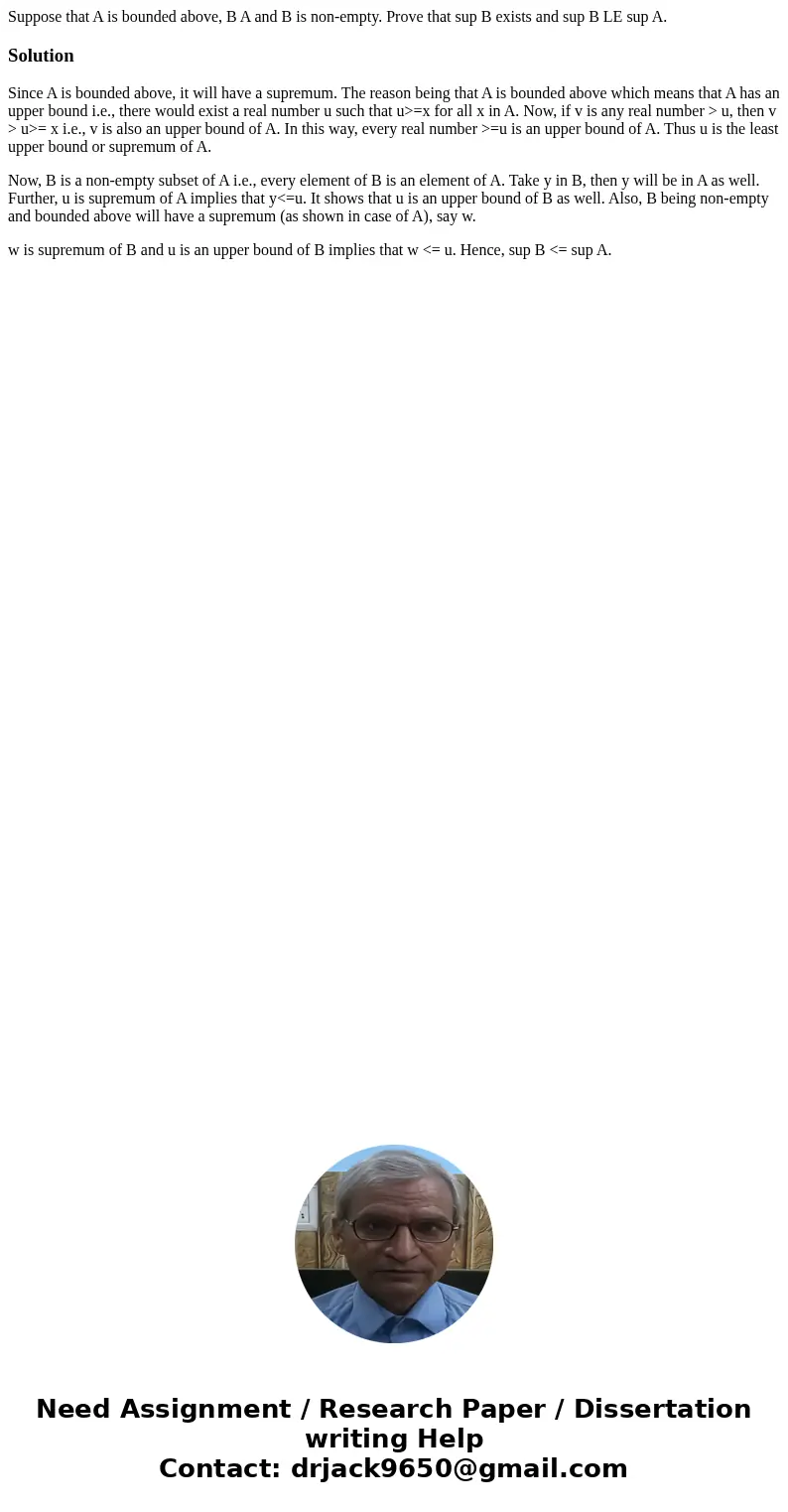Suppose that A is bounded above B A and B is nonempty Prove
Solution
Since A is bounded above, it will have a supremum. The reason being that A is bounded above which means that A has an upper bound i.e., there would exist a real number u such that u>=x for all x in A. Now, if v is any real number > u, then v > u>= x i.e., v is also an upper bound of A. In this way, every real number >=u is an upper bound of A. Thus u is the least upper bound or supremum of A.
Now, B is a non-empty subset of A i.e., every element of B is an element of A. Take y in B, then y will be in A as well. Further, u is supremum of A implies that y<=u. It shows that u is an upper bound of B as well. Also, B being non-empty and bounded above will have a supremum (as shown in case of A), say w.
w is supremum of B and u is an upper bound of B implies that w <= u. Hence, sup B <= sup A.

 Homework Sourse
Homework Sourse